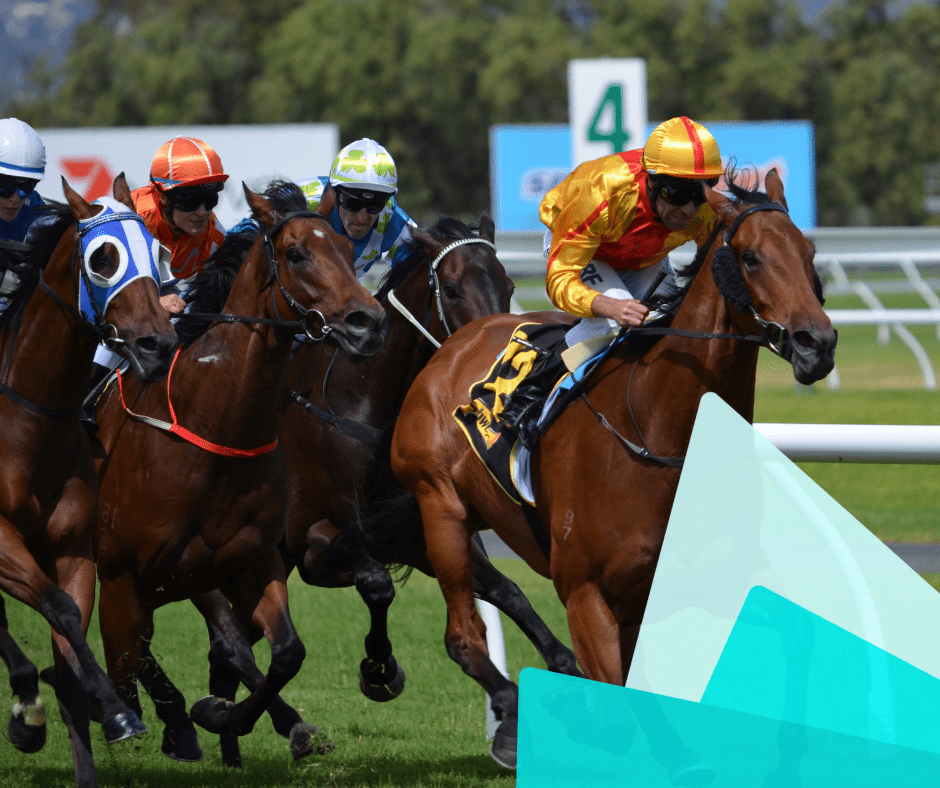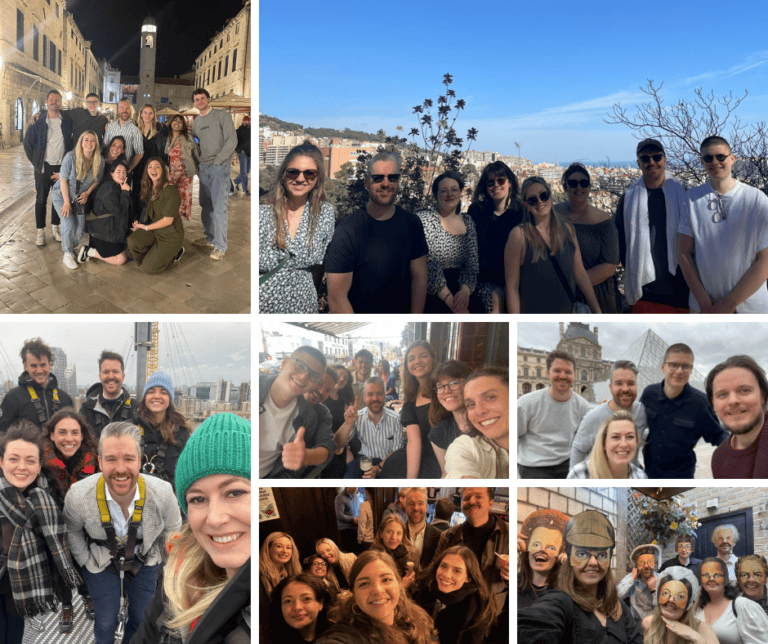We’ve made it to the month of April… Spring is in full bloom, the clocks have changed (at bloody last!), and the recent Easter weekend meant a well-earned few days off gorging on chocolate eggs. Oh, and April is also the month where we enjoy the biggest and most historic horse race of the year… The Grand National!
But back to more serious matters… In the world of business, April signifies the start of a new financial year. This means the marketing teams within many companies have just acquired their marketing budget for the next 12 months and will be strategising ways of how it can be used effectively. For many, this will likely involve analysing the performance of their current Google campaigns, or assessing whether it would be a lucrative channel to allocate budget to if they haven’t done so previously.
Part of this analysis will no doubt involve looking at the bidding strategies that are currently being used, or that could potentially be implemented, before assessing which one would be the most appropriate for achieving a company’s goals. This however, can prove time-consuming and challenging. With a range of strategies available through Google Ads, it can be like trying to predict the winner of the Grand National… Rather tricky!
So, since we are PPC experts, we’ve decided to make the lives of our fellow marketeers a tad easier by putting together a Grand National inspired guide to help you answer the question ‘What is the best bidding strategy on Google Ads?’.
Manual CPC
Experienced, steady and dependable. Like a horse that has won the Grand National on multiple occasions, this is the OG of bidding strategies.
With manual CPC you are in complete control. You set keyword bids, when you want your ads to show and which keywords spend is weighted towards. While there may be an initial period of optimisation, like a jockey working a horse steadily into the race, once everything is in place it should all run smoothly.
Think Frankie Dettori on an experienced horse, Manual CPC won’t let you down and is a pretty safe bet.
———–
Right, before delving into the other bidding strategies it’s worth noting the difference between ‘automated bidding’ and ‘smart bidding’ strategies. While ‘smart bidding’ strategies fall under the ‘automated’ bracket, they use machine learning and real-time “auction-time bidding” to optimise for conversions or conversion value in each and every auction. Automated bidding strategies don’t use this data.
Think horses from two different stables, they’re all thoroughbreds but each stable uses different techniques.
————-
Enhanced CPC
A ‘smart bidding’ strategy, Enhanced CPC is similar to manual bidding, except you leave it up to Google’s algorithms to decide how much to bid on a keyword. This bidding strategy can lead to an improved CTR and conversion rate but you do need to be mindful of spend. While it is ‘semi-automated’ and you do set the initial bid for a keyword, Google recently got rid of their 30% adjustment cap so in theory they can raise the bids to whatever they feel like.Your chances of a conversion may be increased but the amount you are bidding could mean it’s not in line with you desired CPA and it’s not profitable.
It’s like an unpredictable jockey on a dependable horse. He could certainly get the best out of it and produce a win, but if you don’t keep him in check he could just as easily ask too much of the horse and fall short in the race.
Maximise Conversions
Another strategy from the smart bidding stables, maximise conversions is completely automated and you set no bids. With this bidding strategy you specify your conversion goals and then it’s in Google’s hands how much you bid on each keyword. While this bidding strategy can be a highly effective way of generating conversions, it’s imperative that you have water-tight tracking in place. You will also need to keep a close eye on cost as Google will look to spend a campaign’s daily budget every day, especially as they have free-reign over CPC.
If maximise conversions was a runner in the Grand National it would certainly be a temperamental horse. With the right conditions it could be the winner, but if it’s left to its own devices it could prove a disastrous race.
Maximise Clicks
Like a horse from the same stud, maximise clicks is very similar to maximise conversions but it isn’t a ‘smart bidding’ strategy. As the name would suggest, it is all about generating clicks on your ads and you leave it to Google to get them. While you can set a max CPC limit, Google will again look to spend your daily budget every day, so it can prove costly if unchecked.
If you’re not on a strict budget with a desired CPA, maximise clicks is great for generating awareness of your business. Like an upcoming jockey on a young horse, it’s unlikely that they will win but they will want as many eyes on them as possible to help build their profile.
Maximise Conversion Value
Think of maximise conversion value as the more controllable, mature, version of maximise conversions. Another ‘smart bidding’ strategy, rather than being focused on generating the greatest volume of conversions, it’s about bringing in quality conversions. Again, you leave the bidding up to Google, but you set your target Return On Ad Spend (ROAS) (what you want the return to be for the amount you spend).
With this bidding strategy, properly implemented conversion tracking is essential. You assign weight to each conversion (some may be more lucrative than others) so you need to be recording them effectively.
It’s like a more experienced jockey riding the same horse as maximise conversions. He has more control, and he will only expend a certain amount of energy to reach the finish line.
Target Cost Per Acquisition (tCPA)
Another horse out of the ‘smart bidding’ stable, Target Cost Per Acquisition (tCPA) is a bidding strategy that is now only available as part of ‘maximise conversions’. Cost per acquisition is how much you spend per lead / conversion / sale. The idea with this approach is that you set what your ideal CPA is and then Google will adjust bids accordingly and put money behind keywords it feels will help you meet that figure (again, you have to keep a close eye on this).
Imagine you’re a racehorse owner. As much as you’d love to win the Grand National there’s only so far you’re willing to push your horse and jockey. You’re happy to reach a certain pace but that’s it. You may not win but your horse will be feeling fresh for the next race.
Target Return On Ad Spend (tROAS)
In the horseracing world, Target Return On Ad Spend (tROAS) would certainly be the stablemate of tCPA. Rather than setting how much you are willing to pay for a conversion, with this bidding strategy you outline how much you are looking to make for the amount you are willing to spend. Available through the ‘Maximise Conversion Value’ bidding strategy, you leave it in Google’s hands to get you the most bang for your buck. For this bidding strategy it’s vital that you have solid conversion tracking in place.
Imagine you’re a punter who likes to play safe. You like a flutter but you want to maximise the chances of getting a decent return. You therefore bet on the heavy favourite each way.
Target Impression Share
As a relatively new automated bidding strategy, it’s only right to think of target impression share as a young horse in the race.
This bidding strategy is all about the numbers of eyeballs you get on your adverts. Naturally, the higher your ad is in the paid results, the more impressions it will get, so the higher its ‘impression share’. Target Impression Share allows advertisers to select their desired impression share % and where on the page that will be. Either… ‘Absolute Top of Page’, ‘Top of Page’, or ‘Anywhere on the Page’. Then it’s left up to Google to do the rest. As with the other bidding strategies you need to keep an eye on spend as Google is in control of keyword CPCs.
Target Impression Share is a bit like a trainer with a young horse who has the potential to one day be a winner. While this Grand National may be a bit soon, it’s an opportunity to be noticed. You tell the jockey “Keep him in at least the top 10 for the majority of the race”.
And there you have it… A guide to the runners and riders a.k.a the bidding strategies available to advertisers on Google Ads who are looking to run paid search adverts. The one you decide to pick needs to be right for your goals and what you want to achieve from the race.
If you would like more information on what is the best bidding strategy on Google Ads, or you would like to know more about the PPC services we provide, get in touch with one of our PPC experts today.
N.B Unfortunately we are not able to provide betting tips or horse-related advice. Even though Archie in our team used to own a Shetland pony, it is not our forte.



